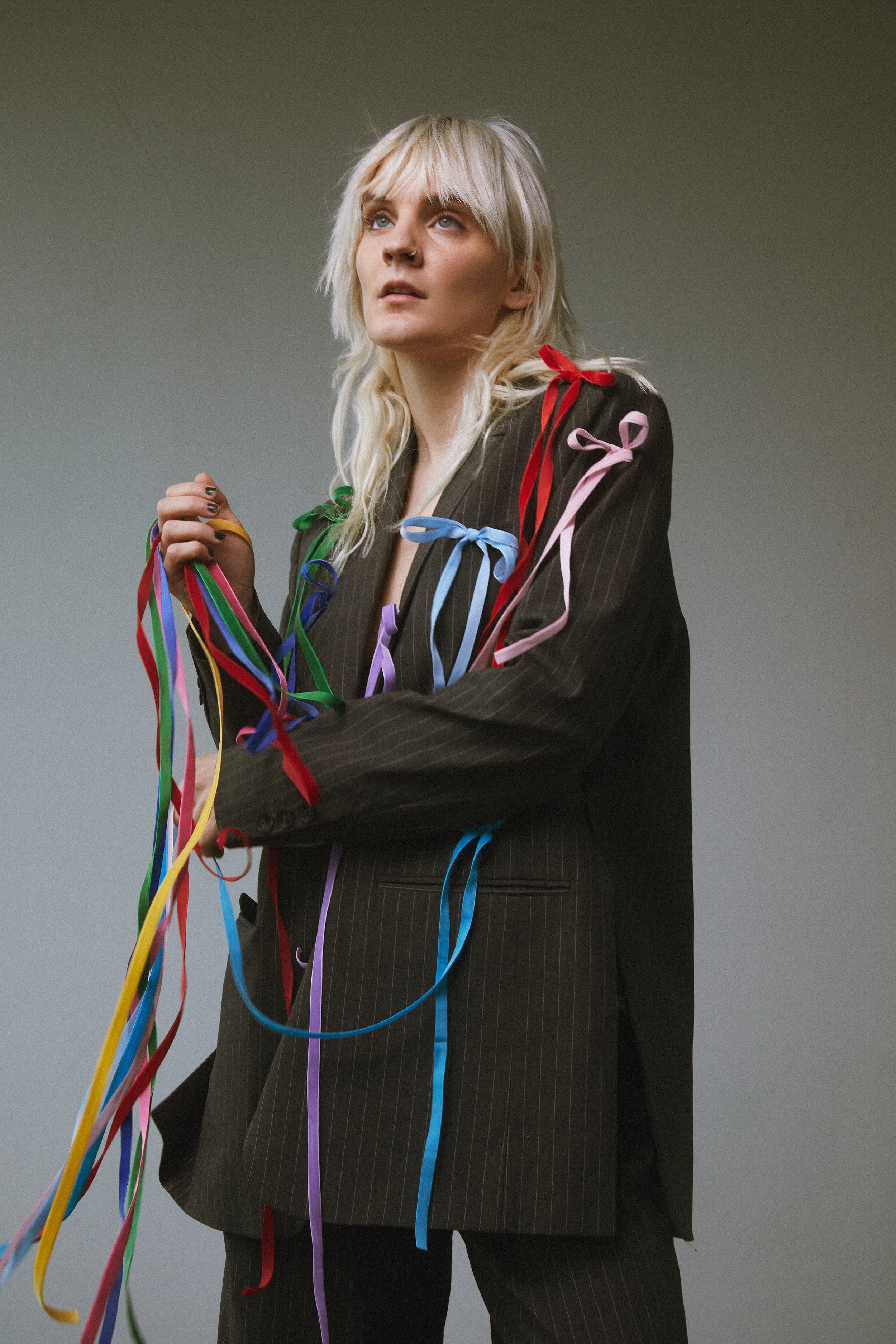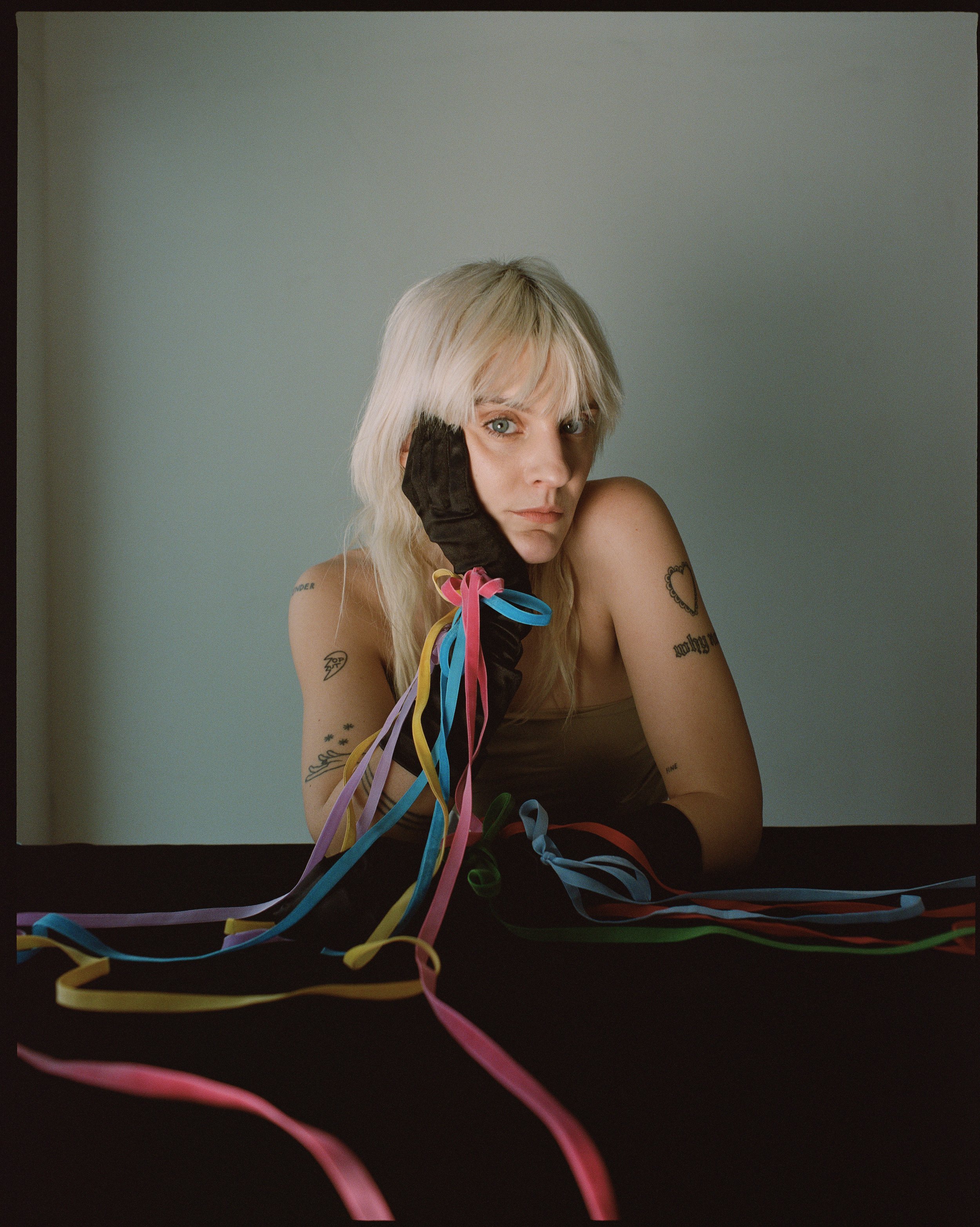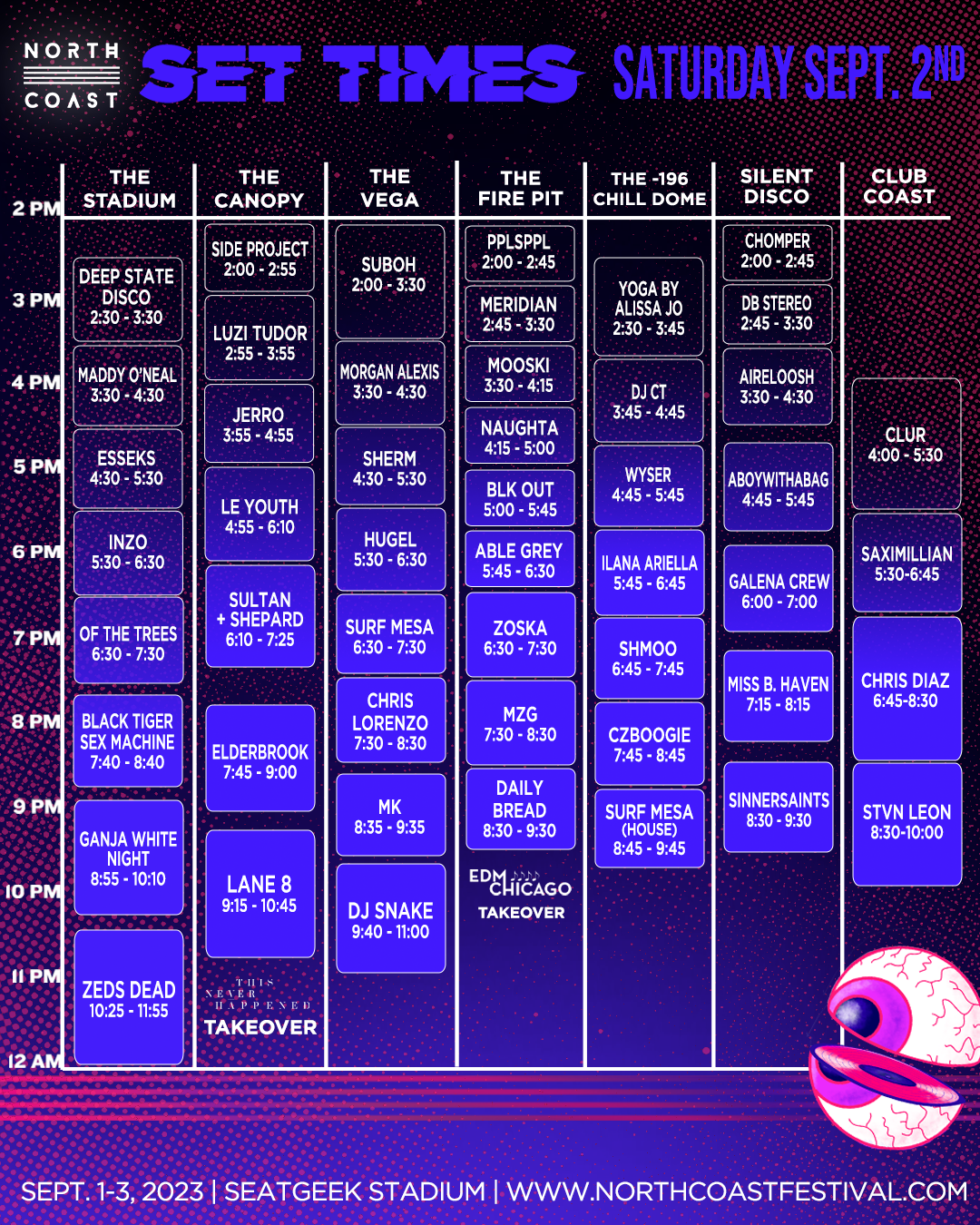by alex grainger
photo courtesy of taylor bickett
The messy, raw, and chaotic growing pains of being a 20-something year old are beautifully captured through Taylor Bickett’s “QUARTER LIFE CRISIS.” In an effort to materialize her thoughts on paper, “QUARTER LIFE CRISIS” became a viral sensation, with millions streaming and Bickett earning the new title of long-lost sister by her fans.
The timelapse of the “QUARTER LIFE CRISIS” music video represents Bickett’s inner turmoil as she grapples with the feelings of fear of wasting her potential, shedding who she once was, and navigating her place in the world. The closed down diner reflects a part of her mind she has just recently chosen to share.
This composition of contradictions was never meant to be relatable, just simply honest. Bickett was able to find solace in the song's response as she learned just how many people are also trying to understand their own versions of a quarter life crisis. Read more about Taylor Bickett and “QUARTER LIFE CRISIS” below!
“QUARTER LIFE CRISIS” lyrically immerses us into the world of 20-something contradictions. How do these contradictions drive the story you are sharing through this track?
Taylor: “The first lyric of the song ‘I’m terrified of rejection but I get high off attention’ was also the first lyric I wrote, and it sets the tone for the rest of the track. I was feeling anxious about a lot of things, particularly social media, and the constant need (especially as an artist) to curate your perception and seek more and more attention online in the name of getting your art out there. This thought then led me to realize how my life, in many ways, is just a collection of contradictions. I ‘say that I read for fun but haven’t read in months,’ for example. I think that this is how most people in their early twenties feel. It’s a shedding of your childhood/teenage self, except you’re not quite an adult yet either. It’s an awkward chrysalis situation.”
“QUARTER LIFE CRISIS” seems to conclude that everyone in their 20s are experiencing some type of crisis questioning who they are and what they’re doing with their life. Was the creative process at all therapeutic in these 20-something growing pains?
Taylor: “In many ways, I would say that writing ‘QUARTER LIFE CRISIS’ was very therapeutic. Putting it all down on paper made it feel more manageable, in a way. What was more therapeutic, though, was the validation I felt when so many people shared that they resonated with the song. To put your most vulnerable thoughts out there, and for people to tell you they feel the same way, that you’re not alone, is a really special thing.”
If “QUARTER LIFE CRISIS” is the first track someone hears by you, what do you hope it says about your sound as an artist?
Taylor: “I think it’s an incredibly accurate depiction of the way I think and process my life experiences. It’s a little humorous, a little self-deprecating, but still emotionally raw and honest. I weave those threads through all of the music I create, especially the new stuff I’ve been working on.”
You’ve mentioned how recording the music video was a bucket list moment. Can you take us deeper into the creative process behind translating “QUARTER LIFE CRISIS” into a visual piece? Did you have a specific vision you felt was most important to capture?
Taylor: “This song has gone through many journeys — from my brain to my notes app, from my notes app to my guitar, to a voice memo, to a recording, to a real published song, and finally to a music video. It felt like the right next step, and I was beyond excited to see it brought to life visually. The vision that I really wanted to capture with the video was the messiness of it. I didn’t see this song having a clean, bright, shiny visual counterpart — it needed a sprinkle of the angst and humor and chaos that went into writing it.”
We see your younger self looking through the diner windows at your present self. Why did you choose a diner as the setting for the “QUARTER LIFE CRISIS” music video? Does it hold any type of significance to you and this song?
Taylor: “Setting the video in a diner was actually the directors’ idea (Angelica Valente and Pseudo). As soon as they presented it, I was sold. I used to be a hostess at a café and would write songs in my head the whole time and dream about being anywhere else. I think a lot of us have that feeling of being stuck, having all these goals but also not really knowing what to do about them. I also loved the fact that it was a contained space, that the whole crisis was happening inside my head, inside this empty diner after closing. Most people would probably never know it happened (even though most people could probably relate).”
The music video was released on your 24th birthday! Reflecting on the track and your headspace when you created it, where are you now in life? Is the 20-something chaos and confusion still running wild?
Taylor: “Releasing the music video on my 24th birthday felt like the perfect closing of the 23 chapter, but by no means the closing of the quarter life crisis one. I think that might stick around a little while longer. While in certain ways I feel just as lost as I did when I wrote the song, in other ways I have so much more clarity and confidence. I think it’s really special that a song I wrote about all these struggles I was having (as an artist, as a person) and this fear of wasting my potential, of not doing enough, was actually what brought so many new opportunities my way.”
Your fans have given you the title of their long-lost older sister. How special is it that your community looks up to you for advice? How do you continue to connect and grow this relationship?
Taylor: “I remember getting a DM in which someone referred to me as their ‘long-lost older sister’ a couple years ago, and it was the warmest and fuzziest feeling. I’m an older sister in real life. My sister is my best friend, and we both learn from each other every day. Most of my listeners at the moment are young women, and the bonds between young women are so powerful and unique. In some ways, I’m like ‘don’t take advice from me, my life is a disaster,’ but I think that’s the point. It wouldn’t be realistic if I had it all together. Life is messy and imperfect. I want to create a relationship with my listeners that’s like a deeply loving friendship, which is what sisterhood is to me.”
How do you feel “QUARTER LIFE CRISIS” gives a sense of comforting relatability that attracts so many?
Taylor: “I’m glad that it does. I don’t really know why, except maybe that it’s just honest. I didn’t try to make it relatable, it just so happens that what I’m feeling is apparently really relatable. That definitely makes me feel better. It would’ve been awkward if I released the song and everyone was like, ‘we all have our lives together, but sucks for you!’ It surprised me a little that it’s not just twenty-somethings who relate, but people of all ages either feel or have felt this way.”
This breakout single has only left us wanting more! What can we expect from you in the coming months?
Taylor: “The new music is coming so soon I can taste it! I’m so excited to share the project I’ve been working on for over a year now. ‘QUARTER LIFE CRISIS’ is just the beginning.”








